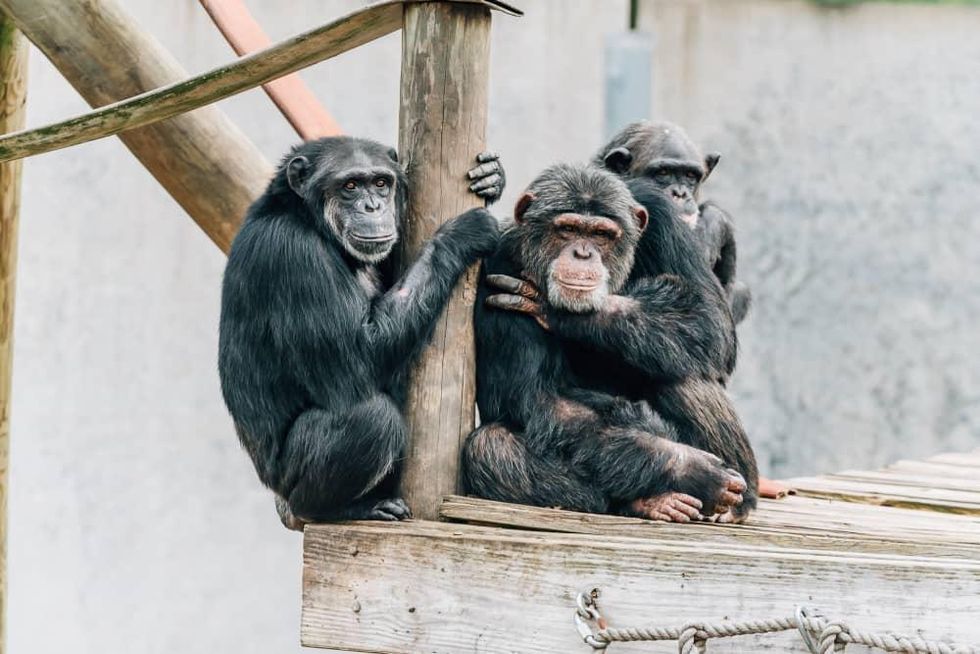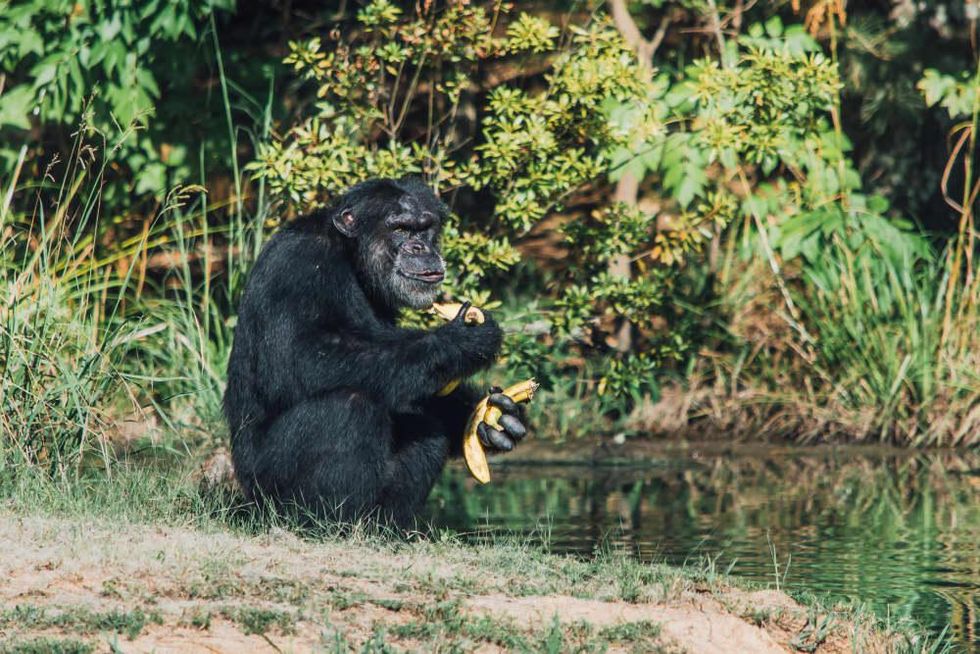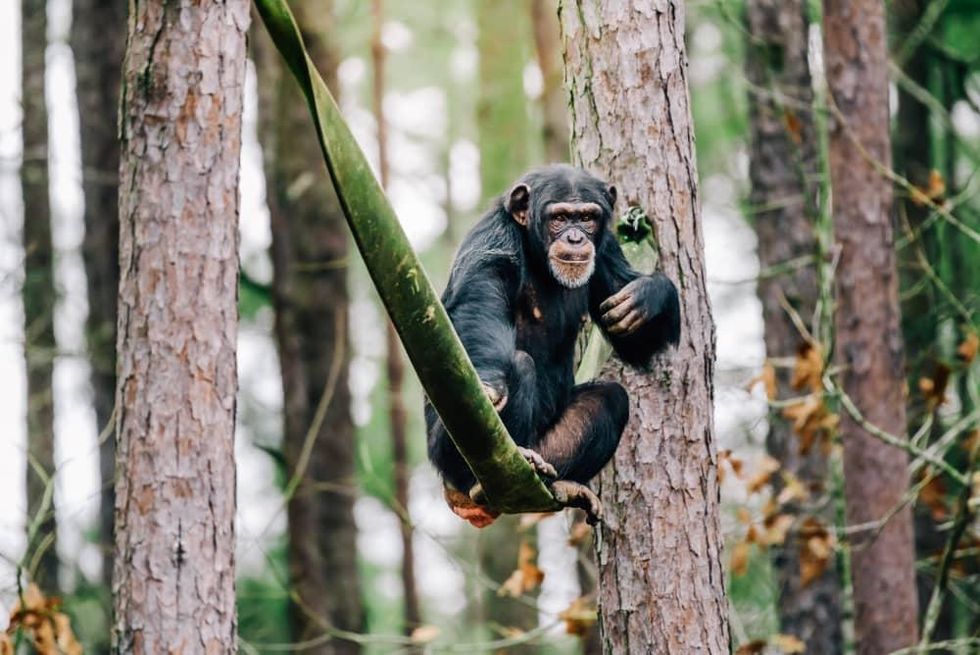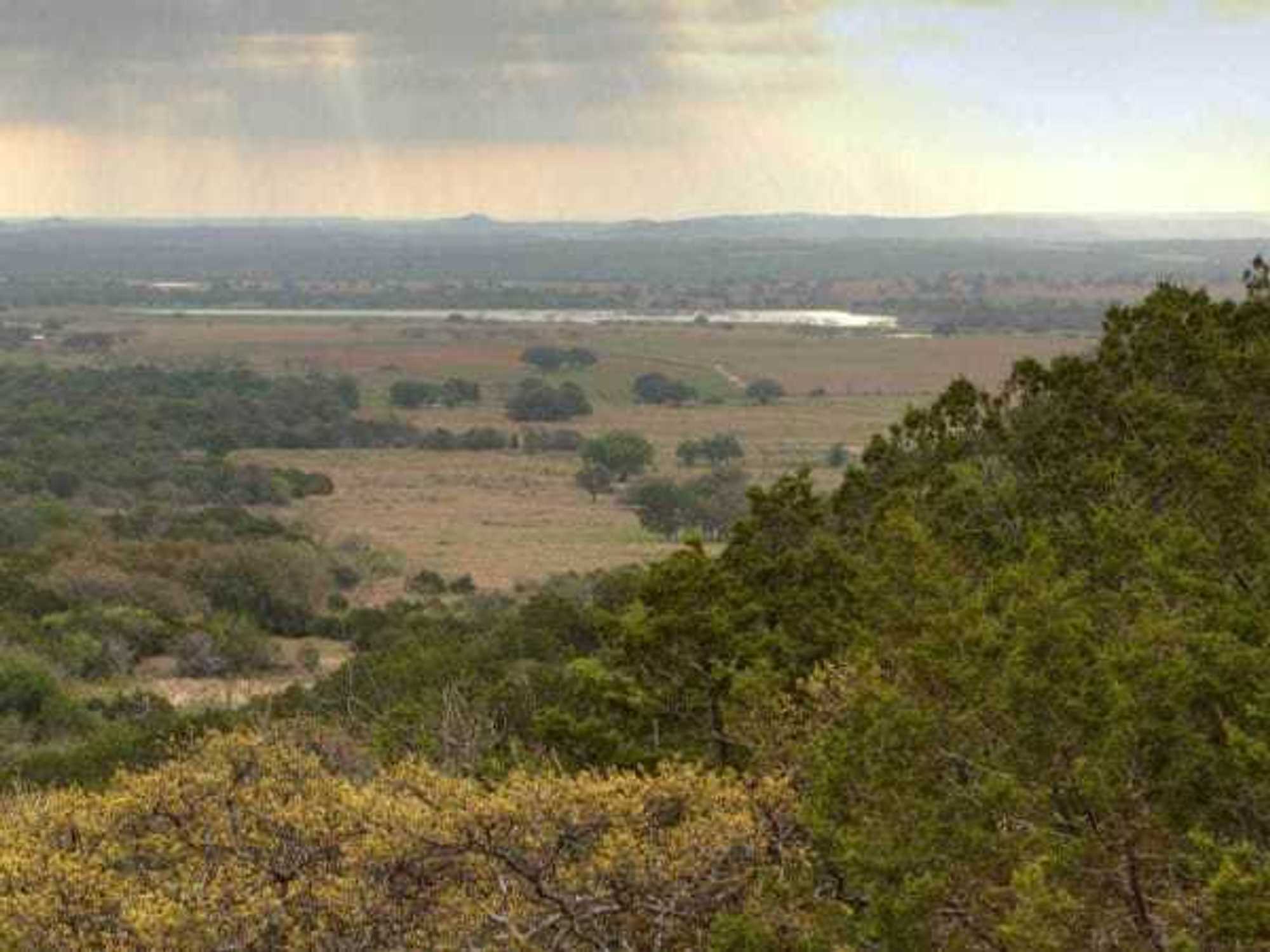animal care
Chimp Haven east of Dallas gives retired lab chimpanzees second chance at happy life
UPDATE: Due to recent inclement weather, Chimp Haven's Chimpanzee Discovery Days event on November 16 has been canceled. "Unfortunately, recent weather conditions have made the road and walkways in the event area unwalkable," they announced on November 15. The next Discovery Day is scheduled for Saturday, March 14, 2020.
---
The world’s largest chimpanzee sanctuary is not in some far-off land, like the tropical forests of Africa. It's a whole lot closer to home — within road-trip distance from Dallas.
Drive about three hours east from the Metroplex, just across the border into Louisiana, and you’ll find Chimp Haven in the town of Keithville. At 200 acres, it claims the title as biggest chimpanzee sanctuary in the world.
Chimp Haven is a nonprofit organization that was founded in 1995 to provide long-term chimpanzee care.
In 2000, it received the federal contract to create a chimpanzee sanctuary when Congress passed the Chimpanzee Health Improvement Maintenance and Protection (CHIMP) Act. The act established a federal sanctuary system to provide lifetime care for chimpanzees retired from medical research.
Then, in 2015, the National Institutes of Health officially ended all research on chimpanzees, creating the possibility for even more chimps to move to the sanctuary.
At the moment, nearly 300 chimpanzees call Chimp Haven home.
“[Chimp Haven] is now the only sanctuary where hundreds of government-owned and supported chimpanzees formerly used in research can now choose how they want to spend their days and who they want to spend their time interacting with,” says Rana Smith, Chimp Haven’s president and chief executive officer.
You can think of the place as a retirement community of sorts for aging chimpanzees, one that’s made for the sole purpose of meeting their needs. The dynamic design of the sanctuary offers chimpanzees the room to experience the joys they would have in the wild — exploring, climbing trees, and living in large, bonded social groups.
“Choice is a key ingredient of sanctuary life,” says Smith. “At Chimp Haven, chimpanzees have incredible diversity of choice, and we cater to each individual’s unique personality and needs. Think of a supermarket and the wide array of fruits and vegetables we get to choose from. At Chimp Haven, that’s what we provide the chimpanzees every day.”
In other words, the chimpanzees get the chance they deserve to live the sweet “Chimp Life,” as the organization likes to call it.
So far this year, 41 new chimpanzees have been welcomed to the sanctuary. Unfortunately, the NIH recently reneged on a promise to send an additional 44 animals currently being held in a biomedical facility in New Mexico, claiming they were too sick or frail to move. There are more than 175 still living in research facilities.
To make room for more animals, Chimp Haven is undergoing a $20 million expansion campaign (funded solely by philanthropic contributions) that includes plans to construct more forested habitats and open-air corrals with multi-level structures by spring 2020.
“We’re on a mission to connect [chimpanzees] to the happy, healthy lives they deserve," Smith says. "After years in research facilities serving human needs, we feel strongly it is our time to serve them.”
Visiting Chimp Haven
Those who want to check out the work Chimp Haven is doing are in luck. Four times each year, the sanctuary welcomes visitors of all ages for Chimpanzee Discovery Days, where they can observe the chimpanzees socializing and interacting with their habitat, and learn about their behavior and care via educational talks led by their expert caregivers.
“We give visitors a one-of-a-kind look at the intricacies and wonders of caring for hundreds of former research chimpanzees,” says Smith. “Animal sanctuaries are rarely open to the public, so Chimpanzee Discovery Days presents visitors with an exclusive opportunity.”
The next Chimp Discovery Day is Saturday, November 16 and takes place from 9 am to 12 pm.
For the best experience, Chimp Haven recommends arriving for the Discovery Day in the morning since caregivers release chimpanzee groups into each of their habitats for breakfast at 9:15 am, 9:30 am, and 9:45 am.
No reservations are required, and admission can be paid at the entrance: $10 for visitors ages 13 and up, $5 for ages 6 to 12, and no charge for ages 5 and younger. Chimp Haven also offers an additional behind-the-scenes, hayride tour, ticketed separately.
Chimpanzee Discovery Days are already scheduled for 2020, too. They will take place March 14, April 25, October 17, and November 14.
For more information, visit Chimp Haven's website.




 Visitors are welcome to kayak and canoe at Tucker Lake, but motorboats are not allowed.Photo courtesy of Texas Parks and Wildlife Department
Visitors are welcome to kayak and canoe at Tucker Lake, but motorboats are not allowed.Photo courtesy of Texas Parks and Wildlife Department